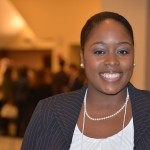“At a crucial time in our history in which talented women continue to struggle with decisions about how to lead and how to blend family well-being with work responsibilities, it is critical for universities to provide training and opportunities for leadership development for intelligent young women to explore their choices and pursue their dreams,” says Sally Reis, who is a Board of Trustees Distinguished Professor of Educational Psychology and leader of the BOLD Women’s Leadership Network.
What counts as “good”? This question gets at the heart of engaging in productive conversations as we describe effective literacy instruction. We explore that inquiry in this episode with Rachael Gabriel and Sarah Woulfin, authors of Making Teacher Evaluation Work: A Guide for Literacy Teachers and Leaders (Heinemann, 2017).
Zip06.com (Neag School alumnus Craig Cooke is featured)
In addition to becoming crucial for financial and social well-being, creativity has psychological benefits. James Kaufman from the University of Connecticut examined how creativity has a potential to contribute to past, present, and future meaning-making. Past-focused meaning making involves finding ways to successfully cope with challenging experiences, such as trauma, regret, or nostalgia-provoking events.
In 2020, the deaths of Ahmaud Arbery, George Floyd, Breonna Taylor, and others led to a resurgence of the Black Lives Matter movement across the nation and around the globe. The revitalization of this movement has come with increased public demand for policy change, and specific calls for anti-racist policies in schools. As a result, many educational leaders are grappling with what this means for their respective contexts, and the extent to which their school or district’s current policies measure up to public demand.
The University of Connecticut Administrator Preparation Program (UCAPP) is a school leadership preparation program in the Neag School of Education. UCAPP’s mission is to prepare highly qualified school leaders to promote equity and excellence in schools throughout Connecticut. Join an upcoming information session.
UConn alumna Truth Hunter was awarded a four-year doctoral scholarship from the University of Connecticut’s Neag School of Education. Hunter is a promising new Ph.D. candidate who arrived on the UConn Storrs campus knowing she will have four years of fully funded support.
Troup middle school teacher Rashana (Wilson) Graham is feeling calm again. After a turbulent and uncertain summer, remote school is set to start Thursday. And she’s ready. New Haven Public Schools teachers like Graham spent most of the past few months trying to plan to teach in-person, online or through a hybrid of the two.
CSCH Program Manager Helene Marcy interviews CSCH Affiliate Jesse Mala about his research looking at the relationship between sport & physical activity and working memory and perceptions of school climate among youth living in poverty.
“Connecticut is far from the only state diverting school decisions to the local level. With few mandates coming from the federal government, most states are taking a similarly flexible approach to COVID mandates, leaving decisions up to individual districts,” said Sarah Woulfin, associate professor at UConn’s Neag School of Education.


